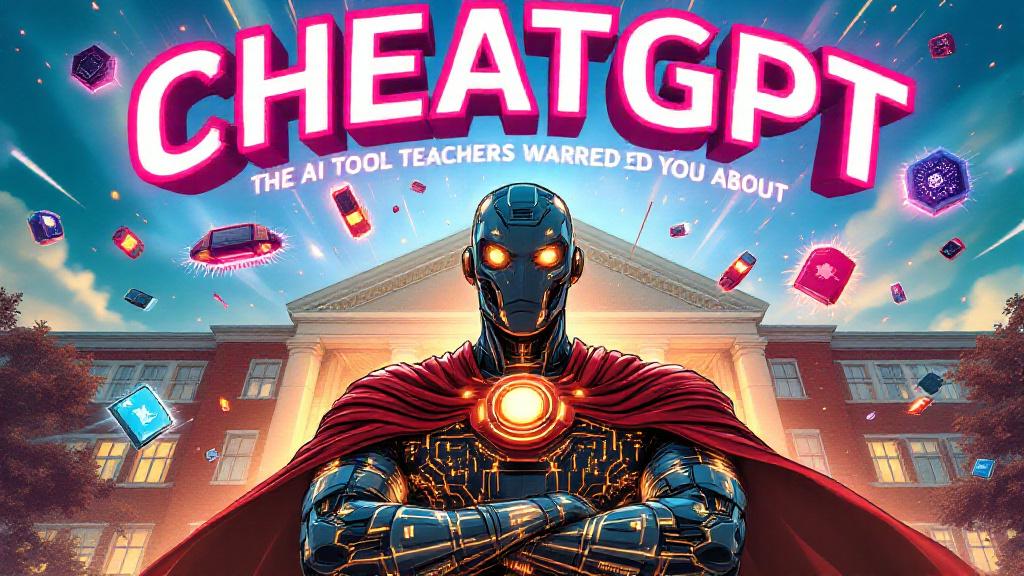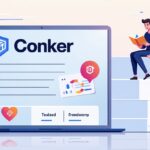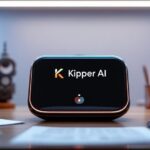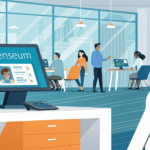
Academic integrity has always been a cornerstone of education, but artificial intelligence is reshaping how we think about cheating, learning, and intellectual honesty. CheatGPT—a term that has emerged to describe the use of AI tools like ChatGPT for academic dishonesty—represents a growing concern among educators worldwide.
But is this AI tool really the academic villain teachers make it out to be? Or are we witnessing the birth pains of a new educational era that requires different approaches to teaching and assessment?
This post explores what CheatGPT really means, why it has educators concerned, and how both teachers and students can navigate this complex landscape responsibly.
What Is CheatGPT?
CheatGPT isn’t an official product or standalone application. Instead, it’s a colloquial term referring to the misuse of AI language models—primarily ChatGPT and similar tools—to complete academic assignments dishonestly.
Students might use these AI tools to:
- Write entire essays or research papers
- Complete homework assignments without genuine effort
- Generate answers for take-home exams
- Create presentations or projects
- Solve complex problems without understanding the underlying concepts
The technology behind these tools is impressive. Large language models can produce coherent, well-structured content on virtually any topic within seconds. They can mimic different writing styles, incorporate research findings, and even adopt specific formatting requirements.
Why Teachers Are Sounding the Alarm
Academic Integrity Concerns
The most obvious concern is straightforward academic dishonesty. When students submit AI-generated work as their own, they’re violating fundamental principles of intellectual integrity that educational institutions have upheld for centuries.
Teachers worry that widespread use of AI for assignments undermines the basic social contract of education: students do the work, demonstrate their learning, and receive grades that reflect their actual knowledge and skills.
Learning Process Disruption
Beyond simple cheating, educators are concerned about how AI might short-circuit the learning process itself. Writing an essay forces students to research, organize thoughts, develop arguments, and practice communication skills. When AI handles these steps, students miss crucial opportunities for intellectual development.
The process of struggling with difficult problems, making mistakes, and working through challenges builds resilience and deepens understanding. AI tools can eliminate this productive struggle entirely.
Assessment Challenges
Traditional assessment methods assume that student work represents individual effort and knowledge. AI complicates this assumption dramatically. Teachers now face the challenging task of distinguishing between authentic student work and AI assistance.
Many educators report feeling overwhelmed by the need to become “AI detectors” in addition to their regular teaching responsibilities.
The Student Perspective
Academic Pressure and Convenience
Students face unprecedented academic pressure, often juggling multiple demanding courses, extracurricular activities, part-time jobs, and social obligations. AI tools offer an tempting solution to time management problems.
For overwhelmed students, AI can feel less like cheating and more like using any other available resource to manage an impossible workload.
Unclear Boundaries
Many students genuinely struggle to understand where helpful AI assistance ends and academic dishonesty begins. Is using AI to brainstorm ideas acceptable? What about checking grammar? Or getting help with research direction?
Without clear institutional policies, students often make their own judgments about appropriate use—judgments that may not align with their teachers’ expectations.
Future Skills Development
Some students argue that learning to work effectively with AI tools represents an important skill for their future careers. They view restrictions on AI use as potentially counterproductive preparation for a world where AI collaboration will be commonplace.
The Real Impact on Education
Detection Technology Arms Race
Educational institutions have responded by investing in AI detection software, creating an ongoing technological arms race. As detection tools improve, so do methods for making AI-generated content less detectable.
This cycle consumes resources and attention that could be better spent on actual teaching and learning.
Changed Classroom Dynamics
Teachers report feeling more suspicious of student work and spending increased time investigating potential AI use rather than providing meaningful feedback. This shift can damage the trust relationship that effective education requires.
Skill Development Gaps
Perhaps most concerning is the potential for students to graduate without having developed essential skills. If AI completes significant portions of academic work, students may leave school without adequate writing, critical thinking, or problem-solving abilities.
Finding a Balanced Approach
Redefining Academic Integrity
Rather than blanket bans, educational institutions need nuanced policies that distinguish between helpful AI use and academic dishonesty. These policies should be developed collaboratively with input from both educators and students.
Clear guidelines might specify when AI assistance is acceptable, how it should be disclosed, and what types of assignments require completely independent work.
Evolving Assessment Methods
Traditional assessment approaches may need fundamental changes. Instead of take-home essays that can easily be AI-generated, educators might focus on:
- In-class writing assignments
- Process-based assessments that value research and thinking steps
- Collaborative projects that require human interaction
- Presentations that demonstrate genuine understanding
- Open-book exams that test application rather than memorization
Teaching AI Literacy
Rather than prohibiting AI use entirely, schools might teach students how to use these tools responsibly and effectively. This could include:
- Understanding AI capabilities and limitations
- Learning to prompt AI tools effectively
- Developing skills for fact-checking and improving AI output
- Recognizing when human expertise is necessary
- Maintaining intellectual honesty while leveraging technological assistance
Moving Forward Responsibly
For Educators
Teachers can adapt to this new reality by:
- Developing clear, reasonable AI use policies for their courses
- Focusing on assessment methods that truly measure student understanding
- Teaching students about responsible AI use rather than simply prohibiting it
- Staying informed about AI developments and their educational implications
For Students
Students should:
- Understand their institution’s policies regarding AI use
- Be transparent about any AI assistance they receive
- Focus on using AI as a learning aid rather than a substitute for genuine effort
- Develop skills that complement rather than compete with AI capabilities
For Institutions
Schools and universities need to:
- Develop comprehensive, realistic AI policies through inclusive processes
- Invest in faculty training and support
- Consider how AI changes the skills students need for future success
- Balance academic integrity with practical preparation for an AI-integrated world
Embracing Educational Evolution
CheatGPT represents more than just a new way to cheat—it signals a fundamental shift in how we think about knowledge, learning, and intellectual work. Rather than simply resisting this change, the educational community has an opportunity to thoughtfully integrate AI tools in ways that enhance rather than undermine genuine learning.
The goal shouldn’t be to eliminate AI from education but to help students develop the judgment, skills, and integrity needed to use these powerful tools responsibly. This requires open dialogue, experimentation, and a willingness to evolve traditional educational approaches.
Educational institutions that successfully navigate this transition will prepare students not just to pass tests, but to thrive in a world where human intelligence and artificial intelligence increasingly work together.

I am Ray Jones Digital
My current occupations: a Digital Marketer, Local SEO expert, Link Builder, and WordPress SEO specialist. Shopify SEO, Ecommerce Store Management, and HTML & WordPress Developer I have been practicing the above mentioned services for more than 10 years now As an SEO expert working with your ongoing projects.



